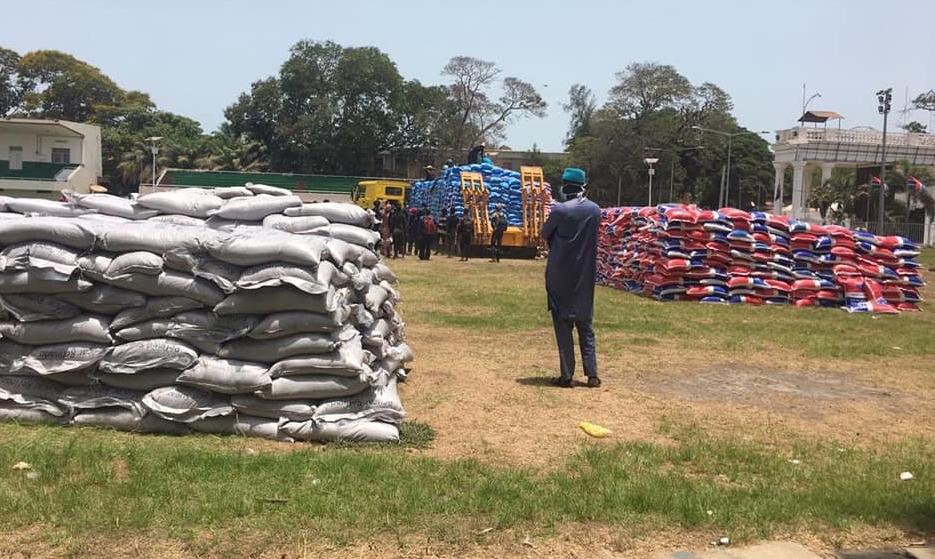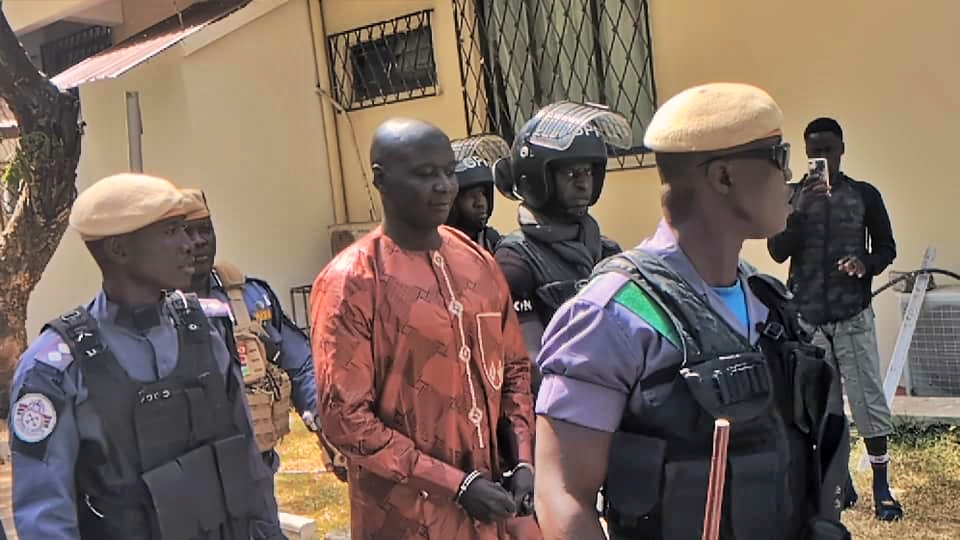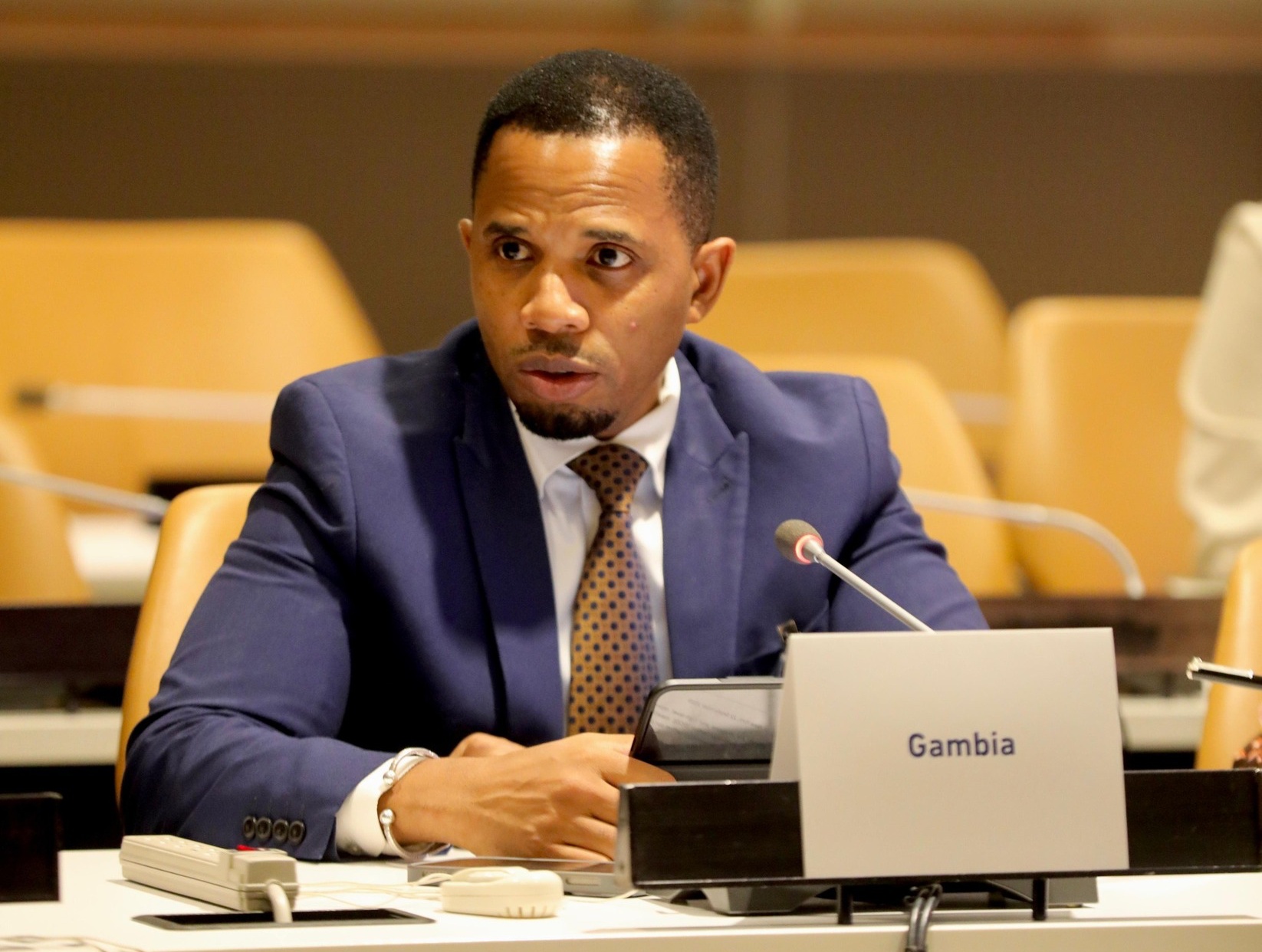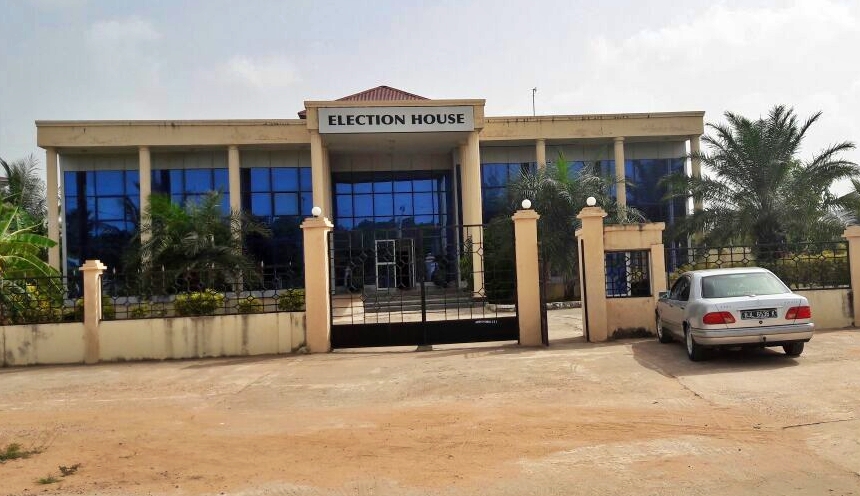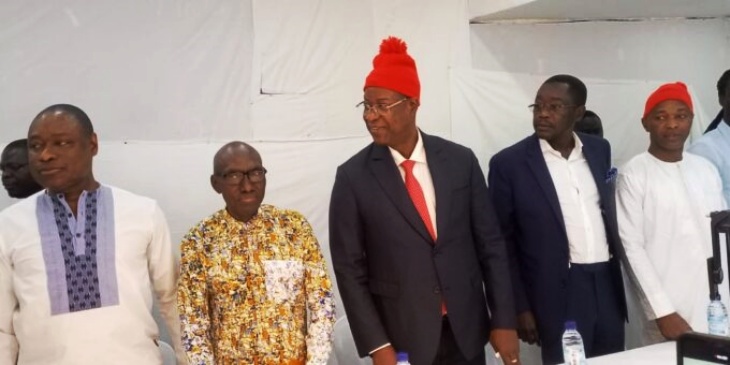Gambiaj.com – (BISSAU, Guinea-Bissau) – Two major political coalitions in Guinea-Bissau, the Inclusive Alliance Coalition (PAI TERRA-RANKA) and the Inclusive Patriotic Alliance (API Cabas Garandi), have reaffirmed that the term of President Umaro Sissoco Embaló will end definitively on February 27, 2025. In a strongly worded joint statement, the coalitions insisted that any extension beyond this date would be unconstitutional.
“The term of office of President Sissoco ends on February 27, 2025, at 14:50 hours, according to the oath and the mandate he signed in 2020,” the coalitions declared at a press conference held in Bissau on Sunday.
The opposition groups called on Guinea-Bissau’s defense and security forces to remain neutral and uphold the country’s constitutional framework. They further demanded the immediate lifting of all restrictions on fundamental freedoms, including the right to assembly and expression, which have been curtailed since January 15, 2024.
“The struggle for the restoration of constitutional and democratic order must continue in a coordinated and responsible manner,” the statement read, underscoring the importance of respecting human rights and ensuring political stability within the country’s legal framework.
Criticism of Political Interference and Human Rights Abuses
The coalitions condemned alleged government interference in political party affairs, arguing that such actions undermine democracy. They urged authorities to respect the framework law governing political parties and conduct a judicial inquiry into reported cases of kidnapping and torture of citizens.
Furthermore, the opposition demanded compliance with Judgment No. 1/2024 of the Military High Court, which calls for the immediate release of all individuals detained in connection with the events of February 1, 2022.
Call for Dialogue and Electoral Process Reforms
The political platforms called for an open and inclusive dialogue involving political actors and civil society to establish a clear electoral roadmap. They emphasized that the resumption of the Permanent Commission of the National People’s Assembly is essential for ensuring a legitimate transition of power after February 27, 2025.
As part of their demands, the coalitions called for the immediate resignation of Satu Camara and Lima Andre from their respective positions as President of the National People’s Assembly and President of the Supreme Court of Justice. Both officials, they argue, were appointed unlawfully by President Embaló. Additionally, they demanded that the Supreme Court of Justice and the National Elections Commission hold new elections for their leadership under the supervision of the Permanent Commission of the National People’s Assembly.
Allegations of Corruption and Economic Mismanagement
The opposition leaders accused President Embaló’s administration of widespread corruption, misgovernance, and economic mismanagement, which they claim have led to increased poverty and suffering among the population. They pointed to the rising cost of living, unpaid wages, lack of medical supplies in hospitals, and deteriorating public services as evidence of the administration’s failures.
They further criticized what they described as the government’s focus on security and defense as instruments of repression rather than investing in essential social services such as health and education. Other allegations leveled against the government included drug trafficking, money laundering, and the misappropriation of public funds.
The opposition also condemned the government’s failure to schedule presidential and legislative elections within the legally required timeframe, effectively depriving citizens of their right to choose their leaders. They accused the administration of deliberately delaying the process to extend Embaló’s rule unlawfully.
Additionally, they expressed concerns over the government’s perceived disregard for national history, particularly the lack of recognition of Guinea-Bissau’s Independence Day.
Political Tensions Ahead of February 27 Deadline
As the February 27 deadline approaches, Guinea-Bissau faces growing political uncertainty, with opposition groups warning of a constitutional crisis if President Embaló attempts to remain in office beyond his legally mandated term. The coalitions have vowed to continue their push for democratic governance and adherence to constitutional principles.
With tensions rising, the coming days will be crucial in determining the country’s political future. Observers are closely watching whether the government will heed calls for dialogue and respect for the constitutional order or if the standoff will escalate into further political instability.




